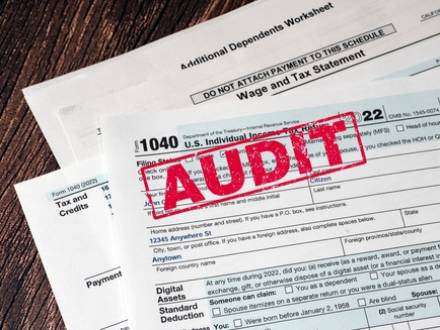What Is the Difference Between Injured Spouse Relief and Innocent Spouse Relief? | CA
 When married couples file taxes jointly, they share responsibility for the tax return and any taxes owed. However, there are situations where one spouse should not be held responsible for their partner's tax debts or actions that violated tax laws. The IRS provides two specific forms of relief to address these situations: Injured Spouse Relief and Innocent Spouse Relief. Each option has different requirements and provides different protections for spouses. An attorney with experience in tax issues related to divorce and other tax law concerns that may affect married couples can help people explore the best legal options for resolving IRS issues.
When married couples file taxes jointly, they share responsibility for the tax return and any taxes owed. However, there are situations where one spouse should not be held responsible for their partner's tax debts or actions that violated tax laws. The IRS provides two specific forms of relief to address these situations: Injured Spouse Relief and Innocent Spouse Relief. Each option has different requirements and provides different protections for spouses. An attorney with experience in tax issues related to divorce and other tax law concerns that may affect married couples can help people explore the best legal options for resolving IRS issues.
What Is Injured Spouse Relief?
When a couple files a joint tax return, the IRS may seize their refund to cover one spouse’s separate debts. These debts could include:
-
Unpaid federal student loans
-
Overdue child or spousal support
-
Past-due federal or state taxes
In these situations, the spouse who is not responsible for the debt can file for Injured Spouse Relief to recover their portion of the tax refund. To do so, the injured spouse may file Form 8379: Injured Spouse Allocation. This form helps separate the taxes, income, and credits of each spouse so that the IRS can return the injured spouse's share of the refund. Form 8379 must be filed within 3 years after the tax return in question was filed or within 2 years after taxes for that tax year were paid.
To qualify for Injured Spouse Relief, a person must meet certain conditions, including:
-
They are not legally responsible for their spouse’s debt.
-
They had income reported on the joint return.
-
Taxes were withheld from their income or they made tax payments.
It is important to note that Injured Spouse Relief only helps recover a refund. The injured spouse will not be absolved of future tax liabilities related to joint returns.
What Is Innocent Spouse Relief?
A spouse may take steps to ensure that they will not be held responsible for their partner's erroneous tax filings. In situations where one spouse unknowingly signed a joint tax return that included underreported income, unclaimed deductions, or other errors that could lead to tax liabilities or penalties, they can apply for Innocent Spouse Relief.
Innocent Spouse Relief allows a spouse to avoid penalties if they had no knowledge of their partner’s errors on a joint tax return. To qualify for Innocent Spouse Relief, a person must meet the following conditions:
-
The taxes owed are due to a substantial error made by the other spouse, including underreporting income or claiming improper deductions or tax credits.
-
The innocent spouse did not know or could not have reasonably known about the error.
If these requirements are met, the innocent spouse can file Form 8857: Request for Innocent Spouse Relief to ask the IRS to forgive their share of the tax debt. This form must be filed within 2 years after a person receives a notice of an IRS audit or a notice that taxes are due. Relief may be applied to taxes due based on a spouse’s income or self-employment.
Key Differences Between Injured Spouse Relief and Innocent Spouse Relief
While both forms of relief are available to protect spouses from tax issues, there are key differences between the two:
-
Purpose: Injured Spouse Relief protects a spouse’s tax refund from being seized for debts that are not theirs. Innocent Spouse Relief, on the other hand, releases a spouse from tax liabilities arising from errors made by their partner.
-
Conditions: Injured Spouse Relief requires that the spouse not be responsible for the debt that triggered the refund seizure. Innocent Spouse Relief requires that the innocent spouse had no knowledge of the errors leading to tax liabilities.
-
Relief Scope: Injured Spouse Relief only applies to tax refunds, whereas Innocent Spouse Relief can remove liability for tax debt.
Contact Our San Jose, CA Tax Attorney
Dealing with tax debts, seized tax refunds, or IRS penalties can be overwhelming. If you are concerned that you could be impacted by debts owed by your spouse or errors on a joint tax return, the qualified San Jose tax lawyer at John D. Teter Law Offices can assess your situation and determine whether you qualify for relief. Our attorney will provide the guidance you need to protect your financial future. Contact us at 408-866-1810 to schedule a consultation.









